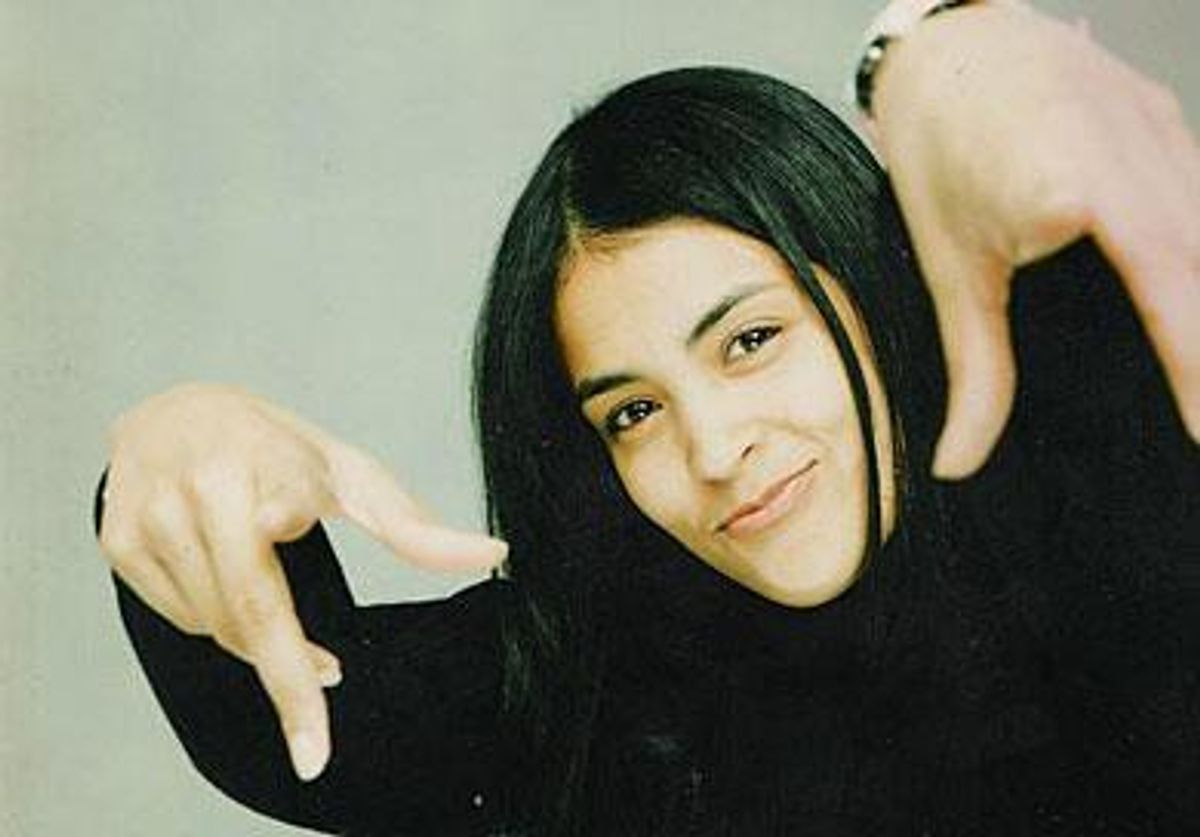Kim Osorio became
a hip-hop legend in 2003 when she decimated the glass
ceiling of one of the most hypermasculine sectors of the
music industry. The Bronx, N.Y., native became
the first (and so far, only) female editor in
chief at The Source magazine, regarded as the
Bible of hip-hop.
But when word
spread (eventually turning out to be true) that the Latina
beauty dated hip-hop superstars 50 Cent and Nas, urban
media, artists, and even her own bosses at The
Source blasted her talent and reputation.
After unjustly
being fired from The Source in 2005, Osorio
challenged the toxic machismo of hip-hop by suing the
magazine, which resulted in a judgment in her favor to the
tune of $7.5 million. The jury found that she was
defamed by one of its co-owners, who claimed she slept
around with industry bigwigs, and that her termination
was retaliation for her complaints about her work
environment.
Now, Osorio tells
her story in her highly anticipated book Straight From
the Source. In a shocking, revelatory, and at
times heartbreaking narrative, Osorio recounts her
experiences as one of the few successful women in the
hip-hop industry.
"I'm not ashamed.
No one should be ashamed of their personal life, no
matter who you are," insists Osorio to The Advocate.
In Straight
From the Source, Osorio states, "Sometimes I
think the hip-hop industry is a bit antiquated in its
thinking. As if it's 1920 or something. When I look at
other industries, what's on television, and what we
consume as Americans, I wonder why the hip-hop circle
is so damn judgmental."
Osorio was
judged, but in revealing her story, she went beyond the
confinements in hip-hop, thus resonating with various groups
who suffer the same stigmatization (bordering on
criminalization) while on the job or in everyday
life.
When thinking of
sexism in hip-hop, one cannot forget its homophobia, a
contagious infection in an art form that once stood for
positivity. There are artists who have spoken out
against homophobes, including Russell Simmons,
Kanye West, and Advocate cover girl Mary J.
Blige. But do these select few endorsements
change in any way diehard antigay sentiment?
"For Russell,
Mary, and Kanye I think it's genuine, but from the rest
of the community...I think they're just following," Osorio
reasons. "There are very few people who will openly
say something homophobic, and if they do...they tend
to take it back. They renege on their words
because they know how powerful the gay community is."
In September 2007
rapper Ja Rule declared gays were "fucking up
America," a comment that was quickly met by vicious
backlash, the most press he'd had in years. The rapper
later retracted his statement, claiming his words were
"taken out of context" and adding, "I have relatives
that are homosexuals and, you know, they come over for
Christmas, hang out."
Busta Rhymes and
Chingy are among the list of rappers who have recently
spewed homophobic remarks and quickly pulled
back. Ironically, they're all rappers who have
been the subjects of their own gay rumors.
"The buying power
the gay community has -- artists are a little
apprehensive about speaking out against the gay community,"
explains Osorio. "Hip-hop isn't selling that
well. Over the last couple of years it's been an
art form that has been motivated by greed
and money. So money is the first thing on their
mind...again, for most of them, I don't think it's
genuine."
As judgmental and
bigoted hip-hop can be, Osorio trusts that
the "voice of the streets" can evolve with the right
artist behind it. "You'd be surprised how hip-hop can
make something so acceptable and cool. You have
the right person coming out and you can change the
whole perception in hip-hop."
Coming out in
hip-hop? Is that even a possibility?
While there are
openly gay or bisexual rappers (Queen Pen being the most
notable), none have experienced anything resembling
mainstream success. Osorio strongly believes an
artist can be openly gay in hip-hop and be
successful.
"Hip-hop has
always thrived off originality," she says. "If
you get the right artist who has the great talent who
happens to be openly gay, I think that it could change
things. That's not saying it wouldn't be hard or
he wouldn't be faced with a lot of criticism and
bashing. But hip-hop tends to root for the underdog
too, so good music always speaks for itself."
Kim Osorio's
achievement as the first female editor in chief at a major
hip-hop magazine, her challenging the standard when faced
with discrimination, and winning the biggest lawsuit
in hip-hop history are all good signs of social
reinvention for an art form that is barely in its
30s. Furthermore, Straight From the Source
is a reminder that all forms of discrimination are
intertwined.
"I think the gay
community can appreciate a lot of the struggles that I
went through," Osorio says. "I know there are a lot of
gay people who have experienced discrimination and
struggle in the workplace. Reading this story is
something that can uplift women, gays -- any minority
that has felt oppressed. It's a different type of
oppression when you go to work and someone has control and
power over your job."


















































































Fans thirsting over Chris Colfer's sexy new muscles for Coachella